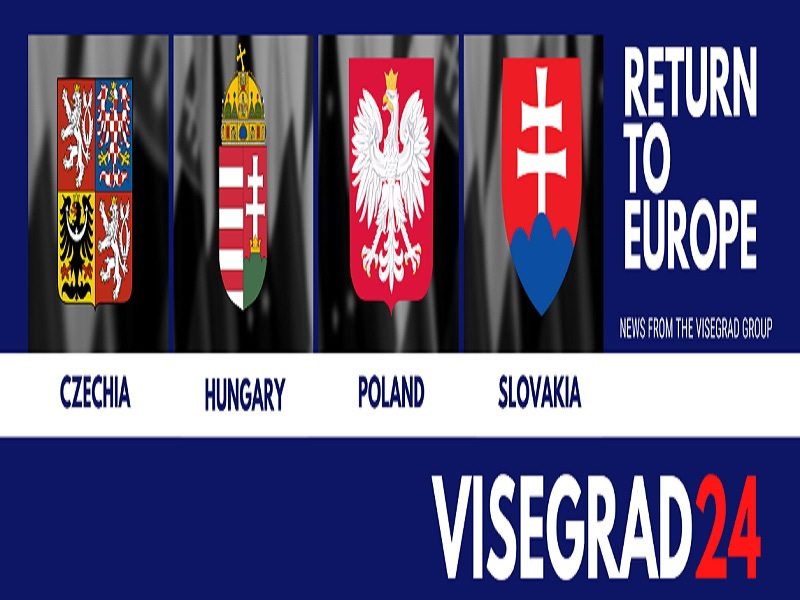Poland’s Reported Propaganda Platform Visegrad24 Is Integral To Its Soft Power Strategy
Polish media’s revelation is such a bombshell since it shows that the same state that goes to the most radical ends to present itself as the polar opposite of Russia actually isn’t all that different from its rival when it comes to their reported employment of indirect means for advancing their respective soft power strategies.
RT reported on Polish media’s revelation that the popular pro-Kiev Twitter account Visegrad24 is clandestinely financed by Warsaw after the state’s official publicly released budgetary documents explicitly confirmed this “politically inconvenient” fact. The reason why it’s so scandalous is because this propaganda platform is among the most popular ones covering the latest phase of the Ukrainian Conflict. Not only that, but it also has a history of publishing disputably fake news too.
This disclosure wasn’t exactly unexpected, however, since it was obvious to any objective observer that Visegrad24 was aggressively pushing hyper-partisan interests that suspiciously coincided with Poland’s in all regards. Their opaque website, which conspicuously omits any mentioning of its owners (not even attempting to mislead investigative journalists with red herrings), also very strongly suggested that its backers were extremely sensitive about their support for this project becoming known.
With there now being no doubt that the Polish government has been pumping out propaganda through Visegrad24, everything begins to make a lot more sense. This aspiring Central European leader hopes to carve out its own regional “sphere of influence” across the course of the Ukrainian Conflict, one that’ll include nearby EU members like the Baltic States, Czechia, and Slovakia as well as Ukraine itself, whether the entirety of its rump territory via their de facto confederation or just the Western half.
To this end, it’s absolutely imperative that Poland’s soft power strategy rests on a reliable platform for managing regional perceptions, albeit indirectly without any clear trace back to that state itself in order to retain “plausible deniability” while waging sensitive infowar operations. Part of that plan has just been spoiled by Polish media’s latest revelation, but it remains unclear whether a critical mass of their target audience has even been made aware of this.
After all, Visegrad24 is known for blocking those under its Twitter account who share anything that contradicts their hyper-partisan agenda, so it’s possible that they’ll be able to contain the collateral damage that those recent reports stand to inflict on Poland’s reputation. Even if they fail, then another popular sock puppet could just eventually replace it, since its role is invaluable to Warsaw seeing as how it requires a reliable platform of some sort for the perception management means earlier described.
Without that, Poland won’t be able to compellingly push back against neighboring Germany’s hegemonic ambitions that Chancellor Scholz all but openly declared in his manifesto for Foreign Affairs magazine last week. This Central European state simply can’t compete with the funding and GONGO (government-organized “NGO”) networks coming from Berlin, hence why it’s sought to asymmetrically gain an edge over Germany through indirect means via “plausibly deniable” propaganda platforms.
This approach cultivates the artificial perception of being an entirely grassroots effort that supposedly embodies the sentiment of the regional majority, which is intended to create the inertia/momentum for going viral via social media, something that Germany’s related projects struggle to do. Furthermore, by presenting the false veneer of supposedly representing ordinary people from Central Europe, Visegrad24 or whatever might succeed it is seen by others as a barometer of sorts for popular opinion.
The cumulative effect of Poland’s perception management operations is to sustainably entrench and subsequently expand its soft power across the region that its leadership envisages as falling within their “sphere of influence”. To be clear, this is simply a means to a desired end and no value judgement is being made about the employment of Visegrad24 in pursuit of that objective since all serious geostrategic players utilize such approaches, but it’s hypocritical to the extreme in Poland’s case.
That’s because Warsaw incessantly screams about so-called “Russian propaganda” that’s allegedly spread through the previously explained modus operandi, yet it turns out that Poland itself is doing the exact same thing via Visegrad24 it accuses Moscow of. It’s for this reason why Polish media’s revelation is such a bombshell since it shows that the same state that goes to the most radical ends to present itself as the polar opposite of Russia actually isn’t all that different from its rival in this respect.




